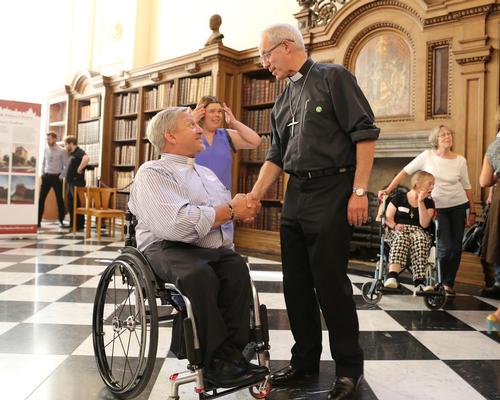18 Jul 2018
Disability and accessibility over heritage, says Archbishop of Canterbury
BY Tom Anstey

Justin Welby – the Archbishop of Canterbury – has said that disability and accessibility should take precedence when it comes to heritage matters.
For the Church of England, all places of worship – and not only listed properties – are subject to the Faculty Jurisdiction system, which balances the needs of worship and mission with care and conservation of the buildings. Where changes are proposed to a listed church there should be a "clear need for the works which is sufficient to outweigh the normal assumption against alteration", say the guidelines.
Despite these protections, however, heritage sometimes proves more important than access, which the Archbishop said should change.
"I would like legislation put through Parliament that put disabilities above heritage," he said, speaking at a disability conference at Lambeth Palace – his official London residence.
Speaking about Coventry Cathedral, Welby spoke about how plans to install a ramp in the historic building were blocked due to heritage concerns.
Guidelines from Historic England on easy access to heritage properties, states that "everyone should be able to enjoy easy and inclusive access to the historic environment". The Equality Act also gives people protection from discrimination, with organisations having to ensure that their premises allow disabled people to access services.
"The access planning process is about finding ways to overcome the barriers to access that are the concern of the Equality Act – and especially those relating to physical obstructions," said the guidelines. "All service providers covered by the Equality Act are required to make whatever reasonable adjustments are necessary to ensure that disabled people are not put at a substantial disadvantage."
According to Church Times, the Archbishop said that when we look at inclusion, "the people that get overlooked are the people with disabilities."
"We need to be brave, so that we talk to people and listen to people with disabilities; and be radical, so that we look at what would make a real difference," said the Archbishop. "So that with all that attitudinal change, there will be a culture change."
Close Window